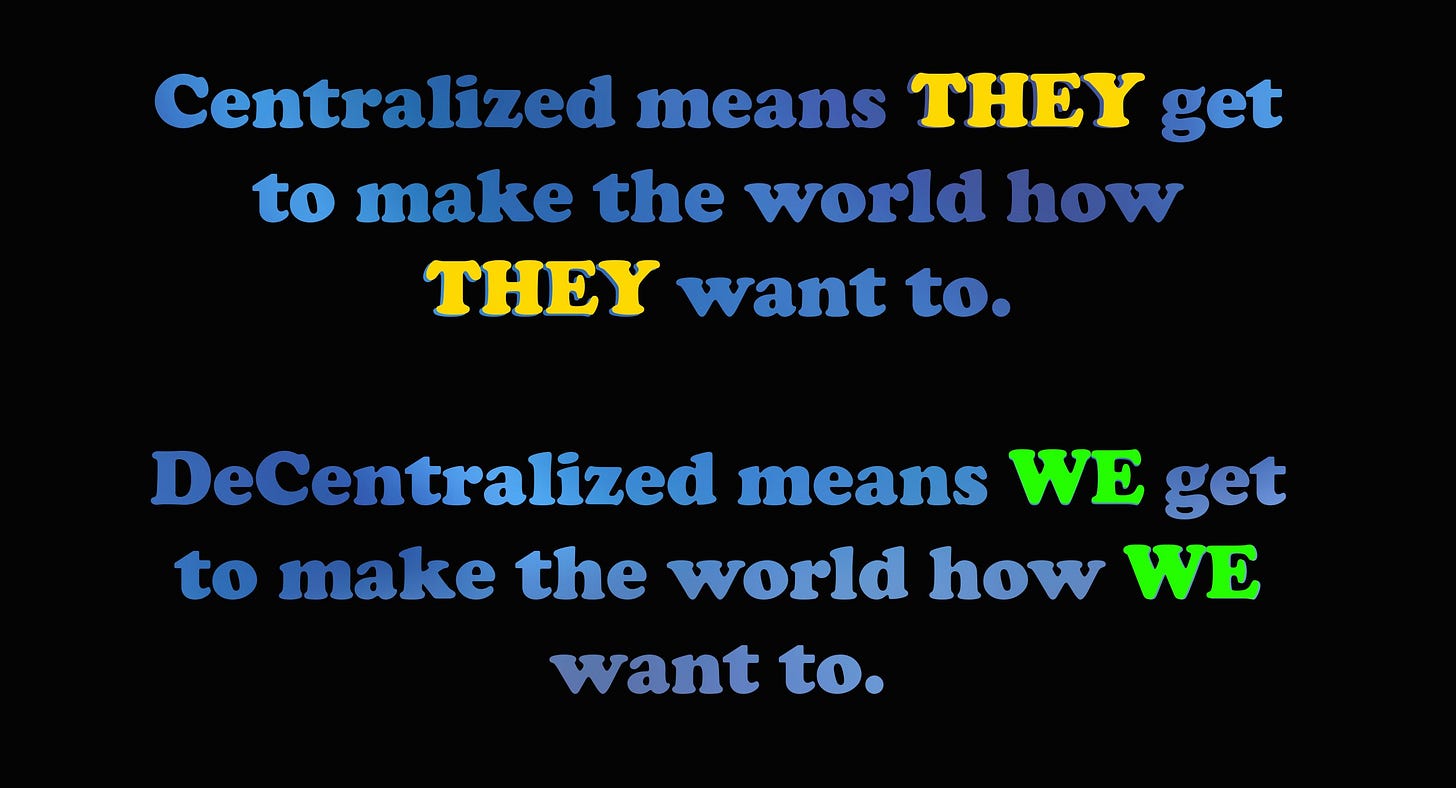Klaus Schwab is Right: We Need to Define The World We Want To See.
The founder of the WEF's vision for totalitarian Orwellian control can be stopped with one of the opposite: A vision for decentralization, transparency, and freedom from corruption.
The most powerful people on Earth use the mighty think-tanks of K Street and elsewhere to organize ways to implement control over people. It’s not a secret. The words coming from Klaus Schwab’s mouth are brilliant, despite their malevolent intent. They are well crafted, zoomed out, and are highly aligned with his allies. Everything from praising the Chinese social credit system, to working towards centralized transhumanism is now all out in the open.
Is his dangerously centralized vision the kind of future YOU want for humanity? Certainly not us.
Listen to his words (below) on Chinese State television. Excerpt:
”We have to have a strategic mood. We have to construct the world of tomorrow. It’s a systematic transformation of the world. So we have to define how the world should look like, which we want to come out of this transformation period.”

Klaus is absolutely correct. His think tanks got it right. It all starts with having vision. This is why we need our own think tanks. If we do not define the world that WE want to see, Klaus and the WEF (or others) are going to define the world that THEY want to see.
Which one would you rather see?
Let’s do something about it.
If you are new to understanding systems, you can learn more about the power of decentralized systems here: Embrace Decentralized Systems. Fear Centralized Ones. Know The Difference.
The world of tomorrow is only in the hands of people like Klaus if we choose not to collaborate towards our own vision. It is a choice starting right now with you reading this.
We need to find better ways to collaborate. We need better tools as society. This is the underlying problem for everything: our systems have been corrupted. To solve this we must:
Build a trustworthy platform that facilitates groups of highly aligned people collaborating on missions together. A digital platform for real-world action. We need this tool to build all the other tools. It must be open sourced, transparent, and trustworthy. (more on this coming soon).
Find ways to build trust between networks of people who never met each other before. (This shouldn’t be too hard since Ebay and Amazon already figured this out with their seller and buyers ratings). But again this needs to be transparent, open sourced, on-ledger, and trustworthy.
As always the entire purpose of The Rationalist is to connect with other solutions-minded people like yourself! We strive to be a Society of Problem Solvers, and if you align with that we are happy that you are here. For 4 billion years on this planet there were only single-celled organisms. Then one day they somehow learned to work together and make complex multi-celled creatures like you and me. Right now we are like those single-celled organisms. Our next evolution is finding how to work together, better.
#DecentralizeEverything #Transparancy
COMMENTS ARE FOR EVERYONE AS A PLACE TO THINK-TANK SOLUTIONS. They will never be for paid-only subscribers and we will never charge a subscription.







Perhaps we could focus on exposing and disabling the liberal-fascist agenda of the CFR/UN/WEF network rather than trying to build a parallel system. The existing machinery just needs a different control program, and a lot of folks are ready for a reboot.
Of course, this would require the right vision, and the right players to make it happen. But look at what Musk is trying to do with the "free speech" movement at Twitter right now. He could flip that back to something useful very quickly.
Are there existing open source collaboration platforms that already do ~60-70% or so of what you are envisioning? If so, is their architecture amenable to building out the missing functionality? Why re-invent the wheel if there's already a wheel that can be improved? It takes a huge amount of time and effort to start up a brand new FOSS project and gain enough traction for it to become viable. Much better to survey the available options and identify which one(s) are most viable. Then engage the existing dev teams and discover, at a technical/architectural level, whether trying to build out the missing functionality is possible, given the state of the codebases, and whether the dev team is even interested in the prospect. If a given platform is a good technical candidate but the development team isn't interested, but you can still generate enough interest in other developers, then a fork and re-branding might be in order....